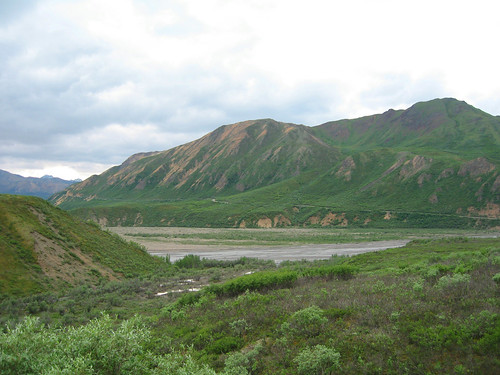By John Balzar
I think she was wrong.
Through most of our human history, we have cherished the idea of unknown places. Native American mythology speaks of spirit lands. Until recently, mountain cultures in the Himalayas forbade trespassing into sacred valleys. The most wondrous maps ever made are those ancient ones that show known terrain, and beyond just blankness and the words: "There be dragons."
From the edge of Sable Pass, you can peer into the one place where there might actually be a dragon. At least, we cannot enter to prove otherwise.
Only 6 by 10 miles, that tundra redoubt is a reminder that wilderness has value beyond direct human use or wildlife preservation.
It is a place to set our imaginations free.
Wilderness is wildness. And wildness, true wildness in the big sense of the word, is America's most threatened commodity.
As Athabascan natives say, wildness is a place for the mind to walk. Wildness is our heritage. It is the landscape of our progenitors. It is our ancestral home. Like art and music, wildness is an essential detail that defines both beauty and humility in our lives, in all life. Wildness is a check against the belief that technology and progress can defy the logic, and the laws, of nature. Wildness, like the grizzly bear, restrains our egos, reminding us that we are part of the living, breathing web of life, nourished by other life. Depending on your belief, wildness was what God gave us, or perhaps what gave us God.
It's basically the difference between owning and renting. In the first case, you do whatever you want to the land. In the second case, you leave it relatively intact because it's not yours to develop.
For more on the subject, see Dennis Prager and The Ecological Indian and Ecological Indian Talk.


No comments:
Post a Comment